|
The Church has organized the liturgy—seasons, feasts, readings, prayers, sacramental rites, et cetera—in a way to instruct the faithful, helping them to enter more deeply into the mysteries of the faith present within the sacraments. As the Catechism of the Catholic Church teaches, the liturgy is “the privileged place for catechizing the People of God” (Catechism of the Catholic Church (CCC) 1074). A liturgy professor of mine would often spend the first fifteen minutes (at least) of class discussing the liturgical celebration of the day—the saint or event commemorated, the prayers and readings—or the upcoming Sunday’s prayers and readings. This professor would even point out to us how the names and titles of certain celebrations are a source of instruction for the People of God.
Yesterday, August 29, we celebrated the Memorial of the Passion of Saint John the Baptist. The deaths of all martyrs can be spoken of as a “passion,” but there are only two passions which are given that title in the Church’s liturgical calendar—John the Baptist and Jesus Christ. Why? We can first consider that these deaths are the only passions recorded in the Gospel accounts. Also, we should take note of how the death of John the Baptist prefigures the death of Christ. As John led others to follow Jesus and proclaimed the truth without fear—even to a high-ranking official—he was arrested and put in prison. Jesus was arrested on account of the Gospel message he taught and the works he performed, which challenged and called out the religious leaders of the time. Others sought to kill John, and King Herod conceded to this death despite his distress. The religious leaders sought the death of Jesus, and Pontius Pilate conceded to this death despite finding the man innocent. In whole, the life of John the Baptist—his birth, ministry, and death—is so closely connected to the life of Christ and mysteries of the faith that we commemorate his death as a passion. We recognize his death as a model of the summit of Christian witness: participating in the passion of Christ and thus in the work of salvation. In the memorial of John the Baptist’s passion, we hear prayers and readings which point us to this truth. This can be seen if we reflect upon the collect (opening prayer) of this feast: “O God, who willed that Saint John the Baptist should go ahead of your Son both in his birth and in his death, grant that, as he died a martyr for truth and justice, we, too, may fight hard for the confession of what you teach.” The liturgy teaches us the faith, and in being taught by the liturgy, we enter more deeply into the great mystery that guides our lives as Christians. Do not let the feasts we celebrate and the prayers and readings we pray pass you by; draw truth and life from them. “It is this mystery of Christ [the Paschal Mystery and work of salvation] that the Church proclaims and celebrates in her liturgy so that the faithful may live from it and bear witness to it in the world” (CCC 1068).
1 Comment
On this day we memorialize the death of John the Baptist, the man who introduced Jesus’s ministry to the world and whom Jesus said was the greatest man born among women (Matt 11:11). Yet, despite this accolade from the Son of Man himself, the Gospels tell us that John the Baptist also seems to have wrestled with something that many of us are still wrestling with today: doubt. Yes, even the Baptist, the camel-shirt-wearing, desert dwelling, locust-crunching prophet who calls the crowds that come to him a “brood of vipers,” sat in prison and wondered about whether the “nobody” carpenter from Nazareth was who he said he was. The Gospels suggest that part of John’s doubt seems to have come from his expectations for Jesus. When John is called by God out of the desert, he announces the coming of the Messiah with metaphors of destruction: “Even now the ax lies at the root of the trees. Therefore every tree that does not bear good fruit will be cut down and thrown into the fire. I am baptizing you with water, for repentance, but the one who is coming after me is mightier than I. I am not worthy to carry his sandals. He will baptize you with the holy Spirit and fire. His winnowing fan is in his hand. He will clear his threshing floor and gather his wheat into his barn, but the chaff he will burn with unquenchable fire.” (Matt 3:10-12) John’s expectation for the Messiah is that he will cleanse through destruction; that he will rid the world of sin, but in a grandiose, violent way. His metaphors and proclamations are laced with references to fire and culling, suggesting that John envisions Jesus the way we tend to envision John—full of passion, intensity, even a little frightening. When Christ comes to John for baptism, Christ does not condemn John’s vision, but rather Jesus’ ministry adds to the story. Rather than cutting the root from the tree, Jesus invites sinners to dine with him. Rather than shaking his fists from the river, Jesus sits on the mountain top and declares the poor blessed. Later, when John is imprisoned for publicly condemning the unlawful marriage of Herod, he receives word of Jesus’ latest miracles: the healing of a Centurion’s slave and raising of a widow’s dead son. The Gospels paint an interesting portrait of John’s response. When John heard in prison of the works of the Messiah, he sent his disciples to him with this question, “Are you the one who is to come, or should we look for another?” (Matt 11:2-3) I can imagine John sitting in the corner of his cell, hearing of these miracles and wondering whether everything he thought about the Carpenter had been wrong. In the darkness of his cell, alone, surely knowing he would soon die, John doubts whether this man who heals is actually the ax he had been expecting. There are two things that stand out about John’s moment of doubt: First, John’s response to his doubt is to go to the source himself. John does not sit frustrated and angry, allowing his doubt to grow into resentment or apathy like so many of us do today. He sends his disciples to Jesus directly. John’s response should serve as a model for our own inquiries. Prayer, direct communication with Christ, is necessary to knowing the truth about his identity. Imagine it in terms of a marriage. What if a husband and wife never communicated with one another when they were concerned with the actions of the other? Not only does a potentially problematic action go unaddressed, but the spouse who desires to know the mind of her lover cannot. She risks constructing a faulty image in her head, one that further drives a wedge between herself and her husband. So too do we drive a wedge between ourselves and the Lord when we doubt and leave those doubts untethered by prayer. When we question Christ, when we question our faith, when we question what is right or how to respond to injustice with charity, we should take those questions to prayer and ask for understanding. We should ask to see God as he truly is, not as we want him to be. The second important thing to note about John’s moment of doubt is Jesus’ response. Matthew reports it this way: Jesus said to them in reply, “Go and tell John what you hear and see: the blind regain their sight, the lame walk, lepers are cleansed, the deaf hear, the dead are raised, and the poor have the good news proclaimed to them. And blessed is the one who takes no offense at me.” As they were going off, Jesus began to speak to the crowds about John, “What did you go out to the desert to see? A reed swayed by the wind? Then what did you go out to see? Someone dressed in fine clothing? Those who wear fine clothing are in royal palaces. Then why did you go out? To see a prophet? Yes, I tell you, and more than a prophet. This is the one about whom it is written: ‘Behold, I am sending my messenger ahead of you; he will prepare your way before you.’ Amen, I say to you, among those born of women there has been none greater than John the Baptist; yet the least in the kingdom of heaven is greater than he. (Matt 11:7-10). In his response to John and the crowds, Jesus first reaffirms his own actions, for these are the actions foretold in Scripture of the coming of the Messiah. He does not answer with words, but with deeds, highlighting the truth that “by their fruit will you know them.” Jesus then also seems to chastise the crowd for their judgment of John. “What did you go out to the desert to see? A reed swayed by the wind?” Jesus says that John’s vision of Christ is admirable, as it comes from place of virtue and strength. Although John initially sees Jesus only through his own eyes, Jesus recognizes that those eyes earnestly desire the truth and have been well formed. Jesus rewards John for his faith, even if it is imperfect. He does not allow John to remain misguided, but he recognizes John’s effort to know Christ as well as he can and rewards him with the accolade “no greater than.” On the memorial of his death, let us try to be a little more like John the Baptist. Let us yearn for the Lord. Let us know him in prayer and the sacraments. Let us have the humility to open ourselves and our expectations to revision. Let us place our doubts before the Cross and allow John’s words to guide our prayers: “He must increase; I must decrease.” Questions for Reflection: How can moments of doubt make your faith stronger? Is Jesus inviting you to “go to the source” – to come to him in prayer? **This post was originally published on 8/29/2017** 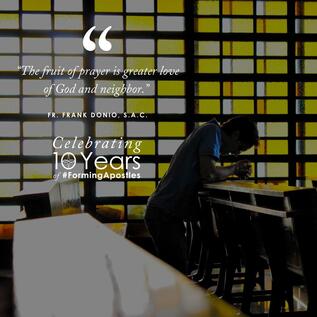 Prayer can be challenging. One of the beautiful things about Catholicism is the variety of ways in which we can pray. That variety can be daunting at times. Where does one start? The important thing to recall is that prayer is our dialogue with God. We are called not only to speak, but also to listen. Will we have a voice from above telling us what to do? Probably not. We need to still ourselves to listen for the “tiny whispering sound” (1 Kings 19:12). We adore and thank God in prayer. We petition God for our needs and offer contrition for the times when we have sinned. We worship Christin community, most especially at Mass, and in the solitude of our “inner room” (Matthew 6:6). In all these ways, we are in a privileged conversation with God. We need to remind ourselves that we cannot fool Christ. He knows us better than we know ourselves. He knows what is best for us and what we need to be the disciple we are called to be. Prayer offers us an opportunity to come to realize more fully the ways Christ gives us to live more deeply for him and less for ourselves. The fruit of prayer is greater love of God and neighbor. As the saints show us, people of authentic prayer show their holiness through acts of goodness, truth, justice, and charity toward their neighbor. Of course, we can start to make distinctions about who our neighbor is, but in the parable of the Good Samaritan, Christ clearly tells his listeners and us that everyone is our neighbor (Luke 10:15-37).We witness our life of prayer through our words and our deeds! May the Charity of Christ urge us on! In God, the Infinite Love, Fr. Frank In the Gospel reading on August 14, Jesus says to his disciples: “I have come to set the earth on fire, and how I wish it were already blazing!” (Lk 12:49). It is hard to see the flames of Jesus’ love in today’s world. It is easy to focus on the negativity, which can become a hurricane rather than a blazing fire of faith. Rather than trying to recreate a great fire, we can take things one step at a time and make a singular flame. To do this, we must live life as Jesus intended: not by practicing our faith in hiding or in private. Instead, by showing our Catholic faith through our actions, our flame can spread to others. All these tiny fires can grow to create a community to showcase to the world that we are united in the one Body of Christ. On the Easter Vigil, the church is dark. This can be symbolic of our faith. Sometimes our life can feel like an ongoing season of Lent, dark and full of challenges. The Easter candle is lit at the beginning of the Easter Vigil Mass, and a singular flame enters the church. This slowly spreads from person to person, and from the back to the front of the church, a singular flame becomes a whole community’s. When you feel like you have no fire within you, an excellent way to reignite it is through prayer. One’s prayer life can have many ups and downs. When it is up, one is on cloud nine, and one has no struggle telling God their worries, the things they are grateful for, and sitting in silence to hear God. However, it can be hard to even try to pray when one is down. this is when something more powerful - like lighter fuel - is needed. Talking to others or trying a different type of prayer can help. Instead of praying alone, praying with friends and family can tremendously help. This way, one can share their flame as the church does during the Easter Vigil. Creating a group of people to depend on can create a whole group of people willing to share their flame. Another way to create an earth full of the flame of our faith is to join a volunteer group that you are passionate about. This can be directly doing something that can be thought of as faith-related—such as reading the Bible, prayer, and going to Mass—these are all ways of living out our faith. Living out Catholic social teaching can also be fruitful because you actively share your life with others. Personally, I am teaching CCD in order not only to teach about God to the future generation but also to interact with them. You never know what is going on in a child’s life, and just talking and being friendly can ignite their passion for the faith. Other easy things to do are to smile at others when passing them on the sidewalk and take time to listen when someone is having a bad day. While not directly praying over the person, being present is a way to share your flame. Slowly but surely, the Earth will be set ablaze. By sharing Jesus’ love with one another, the whole world can become a community, with all sharing our light. On November 1, 1950, Pope Pius XII issued the Apostolic Constitution Munificentissimus Deus (The Most Bountiful God) which declared “the Immaculate Mother of God, the ever Virgin Mary, having completed the course of her earthly life, was assumed body and soul into heavenly glory.” In doing so, Pope Pius defined for all time that the Assumption is a belief of the Catholic faith (cf. CCC, 966). And though the decree itself is only sixty-four years old, it succinctly shows that the belief spans all the way back to the beginnings of the Christian tradition. But what are the implication of this teaching and its feast day for the everyday faithful? First of all, it further illustrates Mary’s importance not only for Catholics but also for all mankind. This feast is but another way in which the Church honors the vessel that brought the Messiah into the world. It is through Mary that the human race received its savior. Therefore, one can see her Assumption into Heaven as a beautiful gift given to her by God. After living a truly exemplary life of faithfulness and love, God saw fit to bring her body and soul into paradise where, as PopePius puts it, “as Queen, she sits in splendor at the right hand of her Son, the immortal King of the Ages.”  The Virgin’s Assumption, however, is also a gift to the faithful.The Holy Father writes, “while the illusory teachings of materialism and the corruption of morals…threaten to extinguish the light of virtue and to ruin the lives of men by exciting discord among them, in this magnificent way all may see clearly to what a lofty goal our bodies and souls are destined.” Mary was the first disciple of Jesus; she was the perfect disciple of Jesus. At the Wedding at Cana, she tells the servers, “Do whatever He tells you.” This is the same kind of trust all the faithful should try and emulate. And, after living a model life, she was gifted with her body and soul being brought up to Heaven. That is exactly the same hope that all Catholics (should) share. The Nicene Creed sums it up quite well: “He will come again in glory to judge the living and the dead and his kingdom will have no end…I look forward to the resurrection of the dead and the life of the world to come.” Catholics believe that at the end of time itself, when Christ comes to “render to each man according to his works, and according to his acceptance or refusal of grace,” all the dead will be resurrected (cf. CCC, 682). Those who enter Heaven will be restored, body and soul, to the gloried beings they were always meant to be before the Fall. Thus, the Assumption of Mary is not just a one-time occurrence, but rather a foretaste of what will happen at the end of days. It was not only a gift to the Blessed Mother, but also a gift to mankind. Humanity received a glimpse into what lies ahead for those who follow the example of a woman who put her whole heart, her whole faith, and her whole being into the care of a man she knew as her son and the Son of God. **This post was originally published on 8/14/2014** AuthorVictor David is a Collaborator with the Catholic Apostolate Center and is a staff member at The Catholic University of America, his alma mater, in Washington, D.C. He is a member of the Catholic University Knights of Columbus.
No banquet in Scripture would be complete without wine. More than a drink, it is a symbol of hospitality and festive joy, the fruit of the vine and work of human hands, which gladdens the heart (cf Psalm 104:15).
Imagine, then, running out of wine during a wedding feast! If Jesus had not intervened and supplied wine when it ran short, what would the newlyweds at Cana (John 2:1-11) have done? As I look back on the ten years of marriage my husband and I celebrate today, this image of Jesus coming to the aid of the bride and groom with the gift of good wine seems especially fitting. Overjoyed at finally getting to be together after two years of long-distance dating, our first year of marriage was exciting and fun, filled with adventure and plenty of questions about what the next year and beyond might bring. In our second year of marriage, my husband began his studies for a doctoral degree, we moved across the country back to our college town, and we bought our first home. The wine of gladness was plentiful in our first years of marriage. In the years that followed, we experienced many other joys, but not without some very real challenges. We came to know the heartache of infertility, the joys and hardships of parenthood, the stress of financial uncertainty, yet another cross-country move, the sorrow of pregnancy loss, the isolation and anxiety of the pandemic, and the strain of evolving job responsibilities. In many moments of difficulty, I wondered about our supply of wine. Was it enough? If our marriage depended solely on my abilities and choices, surely the wine would have run out long ago. Thankfully, not only do I have an incredible and selfless husband, but Christian marriage “is supported by the continuing presence of Christ in the life of the spouses as he pours into their hearts the gift of love through the Holy Spirit” (United States Catholic Catechism for Adults, p. 286). Through all the hardships, Christ has always poured out the grace we needed. When I wondered how we would have the fortitude to endure difficulties, the wisdom to discern a job opportunity, the patience to deal with interrupted sleep, endless laundry, potty training and more, we have had the unfailing support of family and friends and prayer and the sacraments to sustain us. The wine of grace flowed in unexpected moments of forgiveness, kindness, and understanding amid disagreements or miscommunications. I don’t know where it came from sometimes, but it certainly didn’t come from me! When we were first married, I couldn’t have anticipated all that would await us. We came together out of a love and attraction that has been a great gift. We remain together out of a love made firm in Christ. The United States Catholic Catechism for Adults describes how a couple is “challenged to unite their personal love with Christ’s love. Their human love will survive more effectively the cultural challenges they face, as well as the psychological and economic ones, when it is merged with the powerful love of Christ, who wants them to succeed and whose divine grace is ever at their service” (p. 286). As beautiful and wonderful as they are, the excitement and exhilaration of newly wedded bliss is not enough for a lifetime. The choice to love “for better or for worse, for richer or poorer, in sickness and in health” presents itself time and time again, and many times, it is far from easy. With God’s overflowing and abundant grace, the enduring love of marriage is made possible. Without it, the moment a difficulty arises, the wine runs short. Yet, just as Jesus provided the couple at Cana with far superior wine in greater quantities than they could have possibly needed, God has blessed my husband and me in ways that exceed my wildest imaginings. Ten years in, we share a richer, deeper, and wider life in common than when we were first married. I am filled with gratitude for the good wine of joy and fruitfulness we now savor. Though I don’t know what the next ten years will hold, I pray the wine of God’s grace will continue to flow freely! “Laugh and grow strong.” -St. Ignatius It’s 10pm and the limbs are flowing. Arm circles, head bobs, tapping feet. I clean the kitchen counter like Mr. Miyagi – wax on, wax off--and jam out to my favorite song after an exhausting day. The sheer ridiculousness of my dance moves makes me smile. But I don’t care. I realize life doesn’t always need to be taken so seriously. And I think to myself, what a wonderful world. I walk home on a Tuesday evening from the playground with my three children. My four-year-old turns back to look at me only to collide into this older brother. The two fall to the ground, crumpled together like a terrible game of Twister, and an eruption of wailing ensues. The chaos startles my eight-month-old daughter, who decides to join in on the chorus. The sheer ridiculousness of the incident currently occurring on the main avenue of our neighborhood causes me to chuckle. We must look like a pitiful sight to the cars zooming up and down the street. I soothe my daughter and stoop down to hug my boys and offer to race them home. As our limbs fly down the sidewalk, I think to myself, what a wonderful world. I stretch my leg out over the strawberry patch, my daughter strapped closely to my chest, and find myself practically doing the splits in the mud. Thankfully, my shorts are unharmed. And I think to myself, what a wonderful world. What a wonderful world indeed. It’s a sentiment not many might feel while watching the news or scrolling on their social media feeds. In fact, many things have occurred lately in life that evidence the very opposite. I’m not belittling the world’s or my own suffering, nor am I ignoring it or living naively. But lately in my life and in my motherhood, the Lord has given me the gift of a sense of humor. I have been swimming in my sheer helplessness and finding out everything will be okay if I let the Lord be my current. I do not need to have my act together to be infinitely loved and cared for by my heavenly Father. I do not have to bemoan my littleness or earn God’s mercy. I just have to ask Him for help. Every day, I am Peter flailing in the water. All God is asking me to do is to reach back for the hand that’s always been extended. So I reach and then bow down my head to pray: “Dear Lord, please help me not be a nincompoop today.” So much of my life and motherhood is serious business. Sneaking in as many vegetables as possible into my children’s diets. Teaching them how to scrub their teeth diligently. Choosing books and music and television that reflects truth and beauty. Modeling (or attempting to model) virtue. Practicing superhuman patience. Answering and acknowledging 1,000 pieces of information (mainly in the form of random questions) a day. But so much of it is silly and joyful too. Pretending to be a pirate with my sons and collecting buried treasure. Responding to the incessant demand to “get us!!” at the playground and becoming incredibly adept at climbing play structures. Reading books using all the voices. Having dance parties. Ooing and ahhing at their latest insect find or screaming that a fire truck is coming and pointing wildly to where it is. Watching my daughter shove food into her mouth with delightful noises and finding half of it on her lap. Seeing her crawl for the first time. Having a deep conversation with her using babbling noises. I can choose to view my life through so many lenses. But what I’m being reminded of most recently is to choose the lens of the good, true, and beautiful. Of the silly and the miraculous. The lens of joy and gratitude. Why do we take life SO seriously all the time? When did we stop dreaming or doing awkward dance moves in the kitchen by ourselves? When was the last time you laughed until the tears streamed down your cheeks? After having three children, I guess I’ve realized how fleeting it all is. How quickly this growing up business happens without my permission. And so even though motherhood and raising a family are incredibly hard and stretching (re: strawberry patch), I can’t help but pause for a moment and relish this time in all its sheer ridiculousness and glory. Having entered into my third decade of life, I’ve experienced a decent share of hardship, loss, suffering, and death. I’ve attended many funerals, prayed for many sick people, and heard many tragic stories. Lately, it feels as though the accumulation of these events and stories has become stronger and more prevalent. It seems that many people within my network are experiencing the loss of friends or family members: the death of a parent, young people battling cancer, tragic childhood accidents. Tragedy and losses like this have re-opened my eyes to the reality of how fleeting life is and helping me more deeply appreciate the hidden blessings all around. I’ve often mused recently that my biggest issue these days is likely poop-related or has to do with a lack of sharing. My problems can generally be solved with hugs, eye contact, a fresh diaper, sleep, or a snack. The checkerboard of crumbs on my dining room floor that normally seems like a mountain now feels surmountable. I stop and thank God that these are my issues and annoyances. So I dance, mostly by myself, in the kitchen. And I think to myself, what a wonderful world.
In my Bible study, we are reading through the Second Letter to the Corinthians from St. Paul. The last session covered Chapter Five. It deals with the current and future destiny of our bodies. For we know that if our earthly dwelling, a tent, should be destroyed, we have a building from God, a dwelling not made with hands, eternal in heaven. In verse one, Paul says our earthly dwelling is a tent. What is the tent? Even in his day, most people didn't live in tents. They had stone or wood houses. Clearly that can't be what Paul meant. In fact, he is referring to the earthly body as a tent, and the heavenly body as a building. In the Old Testament, the Israelites traveled with the Holy of Holies, the place where the Presence of God was pleased to dwell in a special and unique way, in the form of a tent structure. It's portable, appropriate for a sojourning people. When they finally reached the Promised Land, King Solomon built the Temple out of stone and precious metals. It was a structure of permanence and stability; it declared this is where God is and He isn't moving. A tent is a much flimsier home than a stone building. Yes, they are both dwelling places, but stone is harder to destroy than cloth, and more secure. There is, to borrow a phrase from Alice in Wonderland, a muchness to stone, a weight and solidity that tents don't have. In the Transfiguration scene in Luke 9: 28-36, Jesus' face and clothing are changed. Scholars take this to mean that we will have our same bodies, the one the soul is united with right now as you read these words, for all eternity. For better or worse. In Heaven, the body shall be glorified and refined, receiving a muchness that we don't have now. In Hell, the body shall be as damned as the soul, in anguish just as fitting. In the ancient world, this concept of retaining your physical body after death would have been flabbergasting. Most philosophical traditions saw the body as something other than the true self. It was something to be punished, or used for mere pleasure, but importantly gotten rid of, so the spirit-self could be free. Christianity says otherwise. We, human beings, are body-soul composites. Matter and spirit united into one creature. And that is good. If we were pure matter, we would be like the inanimate universe, or at best like animals. If we were pure spirit, we would be angels. We are neither. We are a unity of the two most opposite things in the universe, and God looks at us and says we are good. There is a reversion of thought in our modern world that reflects the ancients: either the body doesn't matter at all and I just need to get rid of it because it's not really me, or it's all that matters because there is nothing else to me. It's sneaks into Christian minds as well. Which is devastating, on the psychological and spiritual levels. We should have a sense of home-ness in our bodies. Have you ever met someone who just seemed uncomfortable in their own skin? As if they didn't know what to do with themselves? Have you ever been that person? We're often expected to get our act together. Be confident. Act normal. Own yourself. But you can't own selves, yours or anyone else's. That is a mask. And a mask is not a home. Think now of the people whom you've met who were so solid and real and, in a word, themselves, that you felt comfortable enough to be yourself. Think of the people whose houses you walk into and sigh with peace and the knowledge that you are loved. Think of those whose arms embrace you and tell you it is good to be alive. One of the best ways to love others is to love yourself. Treat yourself with dignity and respect. The Christian is commanded to love as Christ loved, and thus has the duty to be a holistically integrated human being more so than the rest of society. Be at home in your own skin, and allow others to be home in their own existence. We want visitors and guests to feel welcome in our homes, don’t we? Well, they can't unless we do; stability and hospitality begin in the heart. These virtues start to grow when we allow ourselves to become integrated and united, when all of our being is directed and following one Way with all your heart, with all your mind, with all your strength, and with all your soul. **This post was originally published on 7/19/2016**
We walk amidst the shadows and call them life. We’re so accustomed to the dimness of this world that light is too abrasive. It burns rather than warms, offends rather than illuminates. We stumble around in the fog, thinking we are dancing. It’s like looking in the mirror and confusing the reflection with the person. Many things prevent us from truly seeing ourselves—from knowing who we are, from where we’ve come and where we are going. We’ve convinced ourselves that we are comfortable. “Comfortable” is our best friend. It doesn’t demand much of us, doesn't pry, doesn’t ask us to change. It leaves us quite alone, minds its own business. Comfortable—a makeshift refuge amidst the vast discomfort of the world we face each day. Comfortable—the often elusive goal of our lives. Comfortable—a concession to a fate that is not our true end.
Peter, James and John were comfortable in their lives before a rabbi from Nazareth invited them to drop everything and follow him. Their lives were not inherently sinful; their occupations were worthy. Life seemed good. These men were comfortable until they met the Christ who called them to something more. While the high calling Christ invited these men into was glimpsed throughout Jesus’ entire ministry, it is most fully revealed on earth in an apocalyptic way in the Transfiguration of Christ. As the Gospel tells us, soon after Peter’s profession of Jesus as the Messiah, Jesus takes Peter, James and John to the top of Mt. Tabor. Once there, Jesus is transfigured before them, “his clothes became dazzling white. Then Elijah appeared to them along with Moses, and they were conversing with Jesus (Mk 9: 3-4). His apostles are terrified. They have seen something almost greater than they could physically behold. Next, they hear the words of God the Father, “This is my beloved Son. Listen to him” (9:7). They have been confronted by light, the Eternal Light of God himself, and are roused out of any makeshift comfort they had created for themselves. The apostles were uncomfortable, puzzled, amazed. What does the Transfiguration tell us? First, that this luminous state is our destiny. As baptized Christians, we are called to be fully transfigured into Christ himself, shedding anything in our being that does not reflect his light and love. This capacity is already within us, though we diminish it with sin. Second, the Transfiguration shows us that comfortable is not enough. It is neither the goal of the Christian life, nor what we were made for. The Transfiguration instead shows us that we were made for greatness and excellence even amidst the discomfort of our world. We were never made to settle, just as we were never made for the fog, darkness or failure many people accept as daily life. Instead, Christ invites us to love. The Transfiguration is a testament to this love, for this transfigured destiny is only made possible because of his sacrifice of love on the cross. The Transfiguration is pure gift and mercy. And we can begin to be transfigured now, today. To be transfigured, we are called to imitate Christ’s love. This is an uncomfortable love that demands all of who we are. It is love that evaporates our egotism, that hurts, that pushes us out of ourselves and into the lives and well-being of others. Love that we have to practice, and will fail at, again and again. Love that is, and will be, crucified. But love that is worth it. Love that reminds us who we are and why we’re here. Love that takes us from the shadows and actually calls us to dance. Love that breaks through the fog and never diminishes. Love that is the true light. Love that transfigures. As today’s reflection from Magnificat says, “The Savior begs: ‘Become what you behold!’” **This post was originally published on 8/6/2015**
|
Details
Archives
July 2024
Categories
All
|
About |
Media |
© COPYRIGHT 2024 | ALL RIGHTS RESERVED

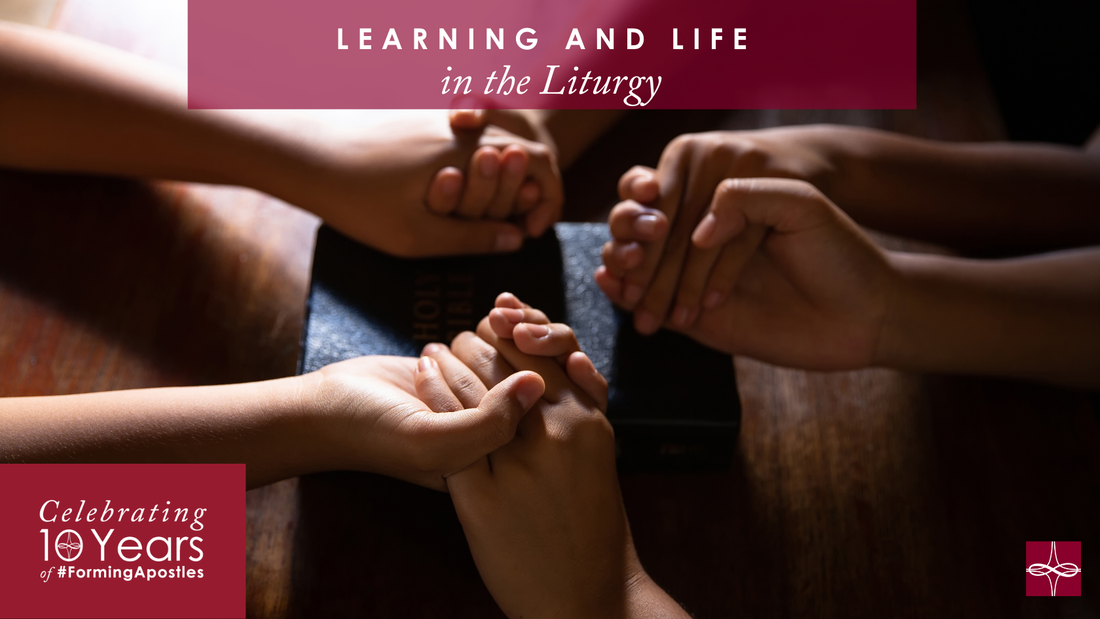




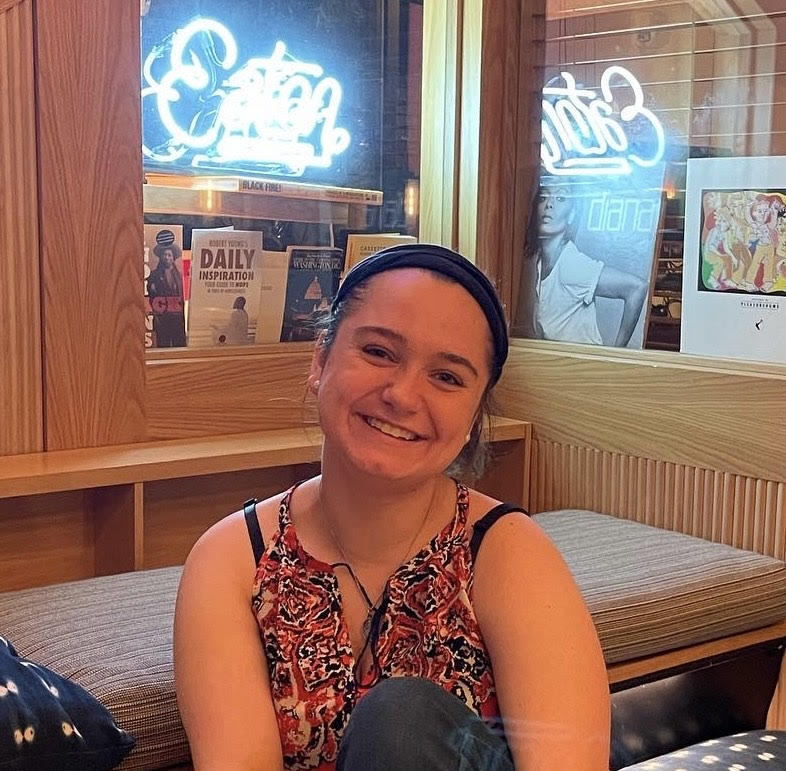
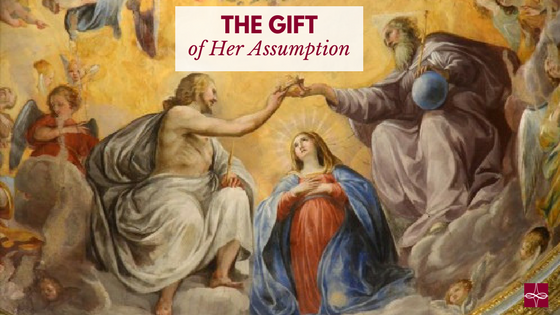
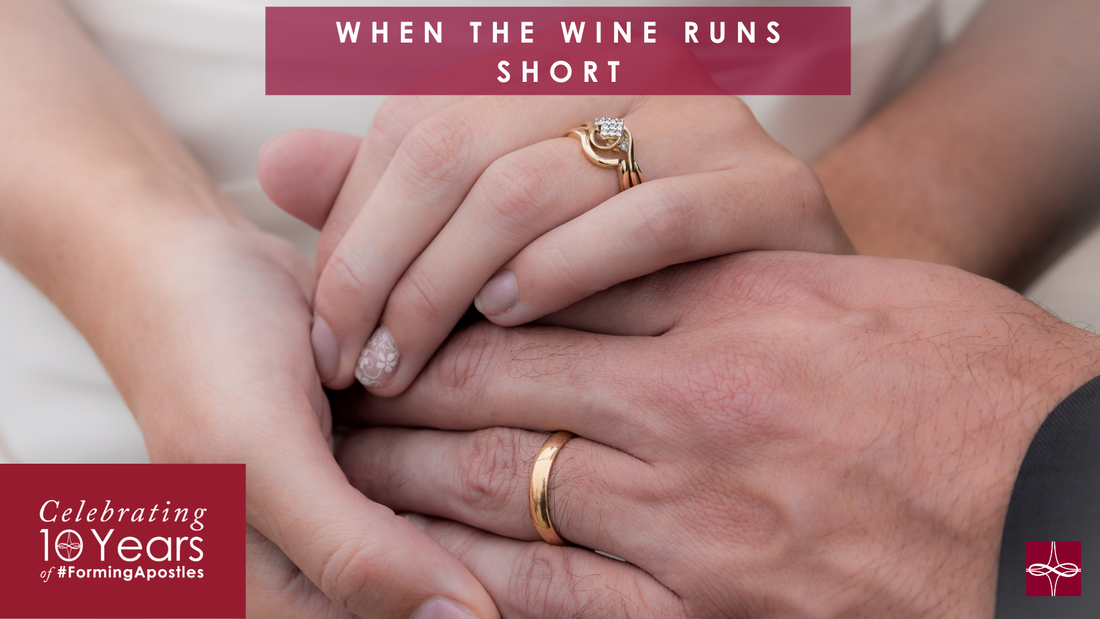






 RSS Feed
RSS Feed